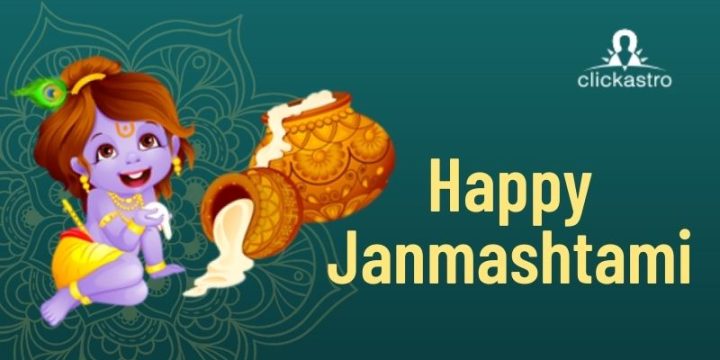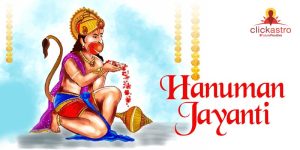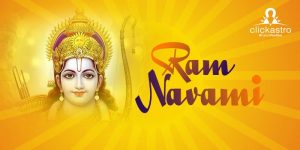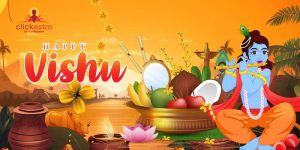Janmashtami – Krishna’s arrival to restore goodness
Krishna Janmashtami, or simply Janmashtami as it is called, is a well-known festival commemorating Lord Krishna’s birth. According to the ancient lore, Lord Krishna was born on the eighth day of the
Krishna Paksha of the Shravan month. SreeKrishna or Krishna is a popular figure in Vedic culture who is worshipped all over the world. Krishna is a holistic figure who is adored as a teen folk hero, skilled warrior, astute diplomat, and ruthless tactician all rolled into one. Krishna Janmashtami is observed throughout India and Nepal, as well as in Fiji, Guyana, Trinidad and Tobago, Jamaica, and Suriname. On this day, devotees fast and perform pooja to obtain Lord Krishna’s blessings..
When is Janmashtami 2023?
The year 2023 marks the 5250th Birth Anniversary of Lord Krishna.
This year Janmashtami will be celebrated on September 6, Wednesday.
The auspicious timings for this day are as below:
Nishita Puja Timings
From 11:57 PM to 12:48 AM on September 07, 2023
Duration – 00 Hours 46 Mins
Dahi Handi
Thursday, September 7, 2023
Parana as per Dharma Shastra
Parana Timing after 4:14 PM, September 07
Ashtami Tithi End Timing on Parana Day September 07, 2023, at 04:14 PM
Midnight Moment September 7, 2023 at 12:25 AM
Chandrodaya Moment 11:15 PM Krishna Dashami
Rohini Nakshatra Commences at 09:20 AM on September 6, 2023
Rohini Nakshatra Conclusions 10:25 AM on September 7, 2023
How is Janmashtami observed all over the world?
During Janmashtami, devotees must refrain from eating any food if their health permits. On the previous day, only one sattvic meal, preferably as lunch, should be consumed. The fasting continues on Ashtami day and ends the next morning after the
Tithi is completed. If there are health concerns, devotees can observe a partial fast by not eating grains during the fasting period. Lord Krishna is worshipped, and prayers are said for him. A cradle with the infant Krishna’s idol is placed and swung in some places, symbolizing his birth. Another common custom is to lead processions. To be a part of the procession, children dressed as little Krishnas enacting various incidents from Krishna’s childhood are common.
Dahi Handi, also known as Uriyadi, is a one-of-a-kind sport celebrated as part of the Janmashtami festival. It is celebrated on the next day of Janmashtami commemorating the incident in which little Krishna stole butter. A rope is used to suspend an earthen pot containing curd, butter, buttermilk, milk fat, or milk. Participants in the sport make a human pyramid by climbing atop one another to reach the pot, which they then smash with a stick. This fosters teamwork and brotherhood among the youth. This sport is played with great fervor in Maharashtra and Goa. The sport is held as a competition with huge prize amounts in various parts of the country in which the Handi or the pot is hung up several stories above ground or on any street.
Fasting and Pooja Vidhi for Krishna Janmashtami
Fasting for Janmashtami commences at sunrise on Janmashtami and concludes after sunrise the next day. The devotee must consume Saatvik food on the day before the fast, i.e. on Saptami. On Janmashtami day, the devotee must wake up early during the Brahma Muhurta and after completing their bath, should spend time reciting
||Om Namo Bhagavathe Namaha||.
The idol of Bal Krishna (Baby Krishna) is adorned with decorative jewelry and clothes, commemorating Lord Krishna’s birth. The devotee then takes an oath (sankalp) to worship the Lord with sincerity and devotion by holding flowers and water in their arms. During this day, Bal Krishna is worshipped by following all of the rites and rituals.
During the fasting period, the devotee must maintain absolute physical and mental discipline. They take another bath in the afternoon combining black sesame seeds and water. The devotees then create a maternity home for Devaki. They honor Lord Krishna’s parents Devaki and Vasudev, Nand and Yashoda, and brothers Baldev, and Lakshmi. The devotees must take a bath before midnight. The pedestal is then decorated with a red cloth and an idol or picture of Lord Krishna is placed on the top.
It is believed that Bal Krishna will appreciate panjiri, the traditional prasad associated with this festival, and white butter. While worshipping, the devotees must use Gangajal and Tulsi leaves. The next day Lord Krishna is offered a bhog of 52 food items known as Chappan Bhog. The fast is then broken by consuming the prasad offered to Bal Krishna.
What is the significance of observing Janmashtami?
Lord Krishna is one of the most celebrated characters in mythological history. He is also one of Lord Vishnu’s most recent incarnations. According to Vedic history, Lord Krishna is the ninth and final avatar of God Vishnu. Lord Krishna was born on July 18, 3228 BC, according to the astrological/astronomical signs recorded at the time of his birth. He is said to have lived until the 18th of February, 3102 BC. Lord Vishnu took the form of Lord Krishna to cleanse the world of evil and to lead people down the path of Dharma. He is a central character in the Mahabharata, a historical epic. Lord Krishna narrated the Bhagavad Gita to a disheartened Arjuna on the
battlefield of Kurukshetra. His birthday is celebrated as the day of restoring goodness.
Sreekrishna Janmashtami is observed to promote goodwill and bring people together, symbolizing unity and faith. It is believed that fasting on this day can achieve the outcomes of many other fasts. Human suffering of all kinds can be alleviated through Krishna worship. Any devotee who keeps this fast with a pure heart and mind will achieve greatness. The Janmashtami fast is also regarded as a blessing for childbirth, happiness, prosperity, and the development of offspring. People with a weak Moon in their
Kundli can benefit from performing a special puja on Janmashtami.
The Legend of Krishna Janmashtami
Ancient tale indicates that Krishna was born in Mathura to Queen Devaki and her husband, King Vasudeva, of the Yadava clan.
Kansa, Devaki’s brother, was a tyrant who, along with other demon kings, terrorized Mother Earth. Kansa had dethroned his father, the benevolent King Ugrasen, from the throne of Mathura. Mother Earth assumed the form of a cow and presented her plight to Lord Brahma, Hinduism’s creator God. Lord Brahma then requested Lord Vishnu, who promised Mother Earth that he would take the form of Lord Krishna to put an end to the oppression.
Kansa consented to Devaki’s marriage to the Yadava prince Vasudeva to gain control of the Yadava clan. The fortune tellers informed Kansa that one of Devaki’s offspring would bring him to his death. In his fear, Kansa decided to kill Devaki right then and there. However, after Vasudeva begged for his wife’s life and promised to give Kansa each child as soon as they were born, Kansa let go of his sister and instead confined Devaki and Vasudeva in a dungeon, making sure that none of Devaki’s children survived. Kansa would smash Devaki’s child’s head against the prison walls as soon as the child was born. Thus he killed seven of Devaki’s offspring.

Consequently, on the night of Krishna’s birth, a bright light filled the prison and Vasudeva was awoken by a celestial voice directing him to take Krishna across the Yamuna and leave him with his good friend Nanda, the head of the Gopa tribe. The very same night, a baby girl was also born to Nanda and his wife Yashoda. Vasudeva stealthily carried Krishna across the Yamuna that was raging like the ocean.
Suddenly, Shesh Naag, the giant multi-headed snake, appeared and assisted Vasudeva in safely carrying Krishna across the river. Vasudeva went to Nanda’s house and swapped the children and returned to the prison with the exchanged baby. As soon as the baby lay next to Devaki, it let out a loud cry. Hearing the child’s cry, Kansa was informed by the guards that Devaki’s eighth child had been born.
Devaki implored Kansa not to kill the baby, pleading that the prophecy had to be untrue as her son was supposed to be the end of Kansa, but Kansa wouldn’t listen. When Kansa attempted to kill the baby, it transformed into Goddess Durga who warned him that he would be punished for his sins as his slayers had been born in his kingdom. She said she could kill Kansa right then and there, however, Kansa’s end had to be timely, and therefore the goddess vanished.
Kansa, on the other hand, was certain that the prophecy could not be entirely true because if his slayer had been born inside the prison, he would have undoubtedly killed him. Kansa released Vasudeva and Devaki and allowed them to live in their palace. After a few days, Vasudeva revealed the details of the night Krishna was born, and Devaki was relieved to learn that her son was safe.
Meanwhile, Lord Krishna spent his childhood in Gokul with his brother Balram. He returned to Mathura as an adult and killed his uncle Kansa, freeing his parents Vasudeva and Devaki from his clutches. The sole purpose of Lord Krishna’s birth was to deliver Bharath from the grip of adharma. He was a key figure in the Kurukshetra war and propagated the theory of bhakti and good karma, which has since been recorded under the title Bhagavad Gita. His birth is regarded as a blessing to humanity, and it is commemorated every year by devotees of Vedic culture around the world.









